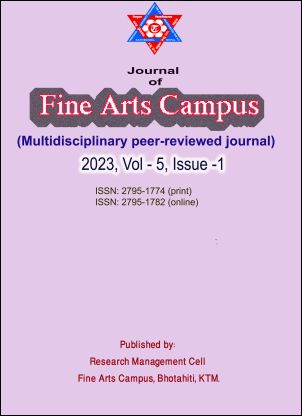Transitioning Towards a Paperless Library: Advantages and Implications
DOI:
https://doi.org/10.3126/jfac.v5i1.60297Keywords:
cost savings, enhanced accessibility, expanded collections, paperless libraries, transition to digitalAbstract
The transition towards a paperless library represents a significant shift in the way libraries operate and engage with their patrons. This transformation offers numerous advantages, including enhanced accessibility, cost savings, expanded collections, and sustainability benefits. Digital libraries often refer to paperless libraries; differ from traditional libraries in terms of format, accessibility, space requirements, and user engagement. The historical significance of paper in libraries underscores its enduring role, even in the digital age. This paper delves into the evolution of libraries, the differences between traditional and paperless libraries, and the implications of going paperless. It also explores the history of information sources before and after the development of paper and printing, highlighting the profound impact of these technologies on knowledge dissemination. Furthermore, it discusses the role of libraries in modern society, including their roles as Information Centers and Knowledge Communication Centers. The paper emphasizes the need and importance of transitioning to paperless libraries, citing advantages such as improved accessibility, expanded collections, cost savings, and sustainability. As libraries embrace technology and digital resources, they continue to serve as essential pillars of education, research, and cultural preservation in an ever-changing world.




